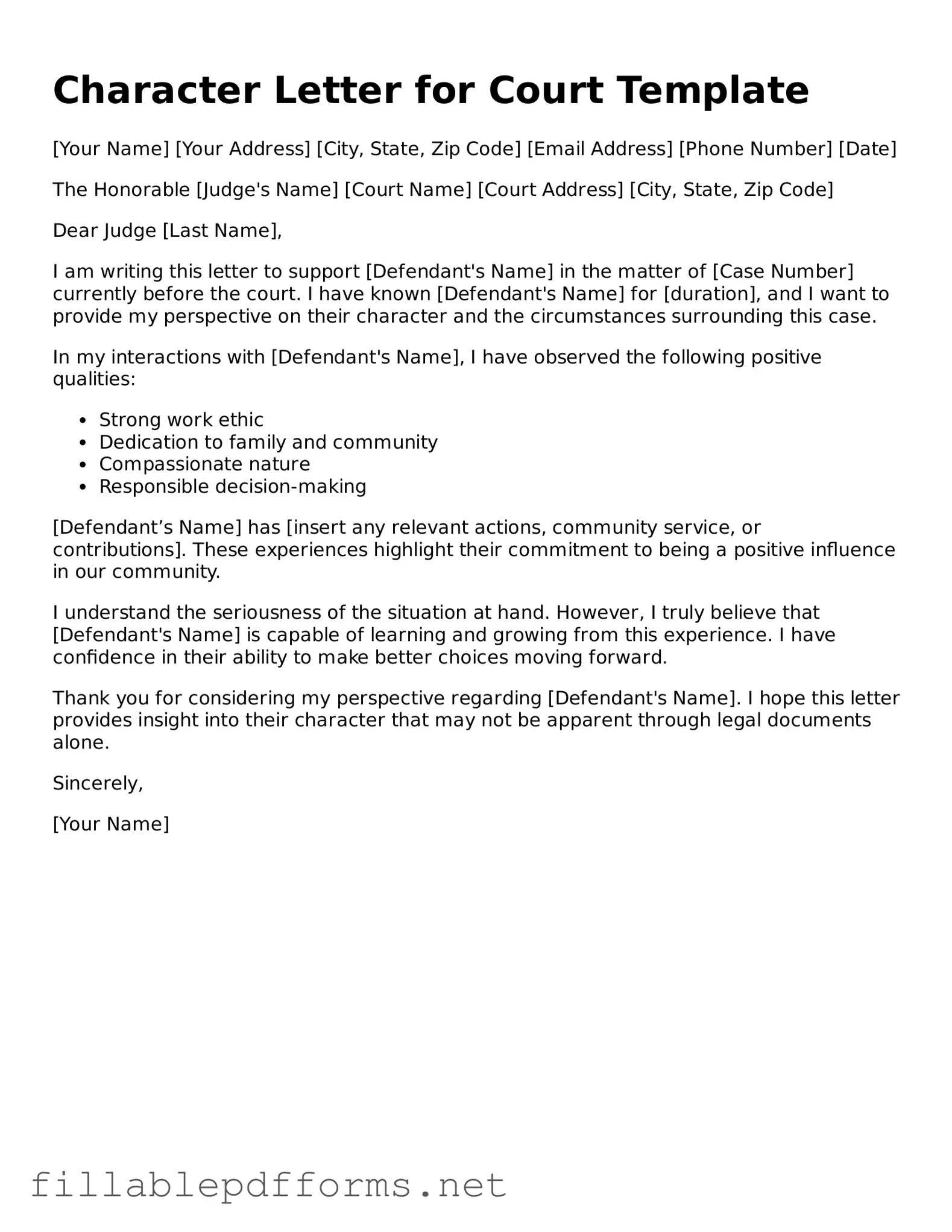Blank Character Letter for Court Template
The Character Letter for Court is a written statement that provides insight into a person's character, often used during legal proceedings. This letter, typically authored by friends, family, or colleagues, aims to highlight the individual's positive traits and contributions. It can play a significant role in influencing a judge's perspective on the person in question.
Launch Editor Here

Blank Character Letter for Court Template
Launch Editor Here

Launch Editor Here
or
▼ Character Letter for Court PDF
Almost there — finish the form
Complete Character Letter for Court online fast — no printing, no scanning.